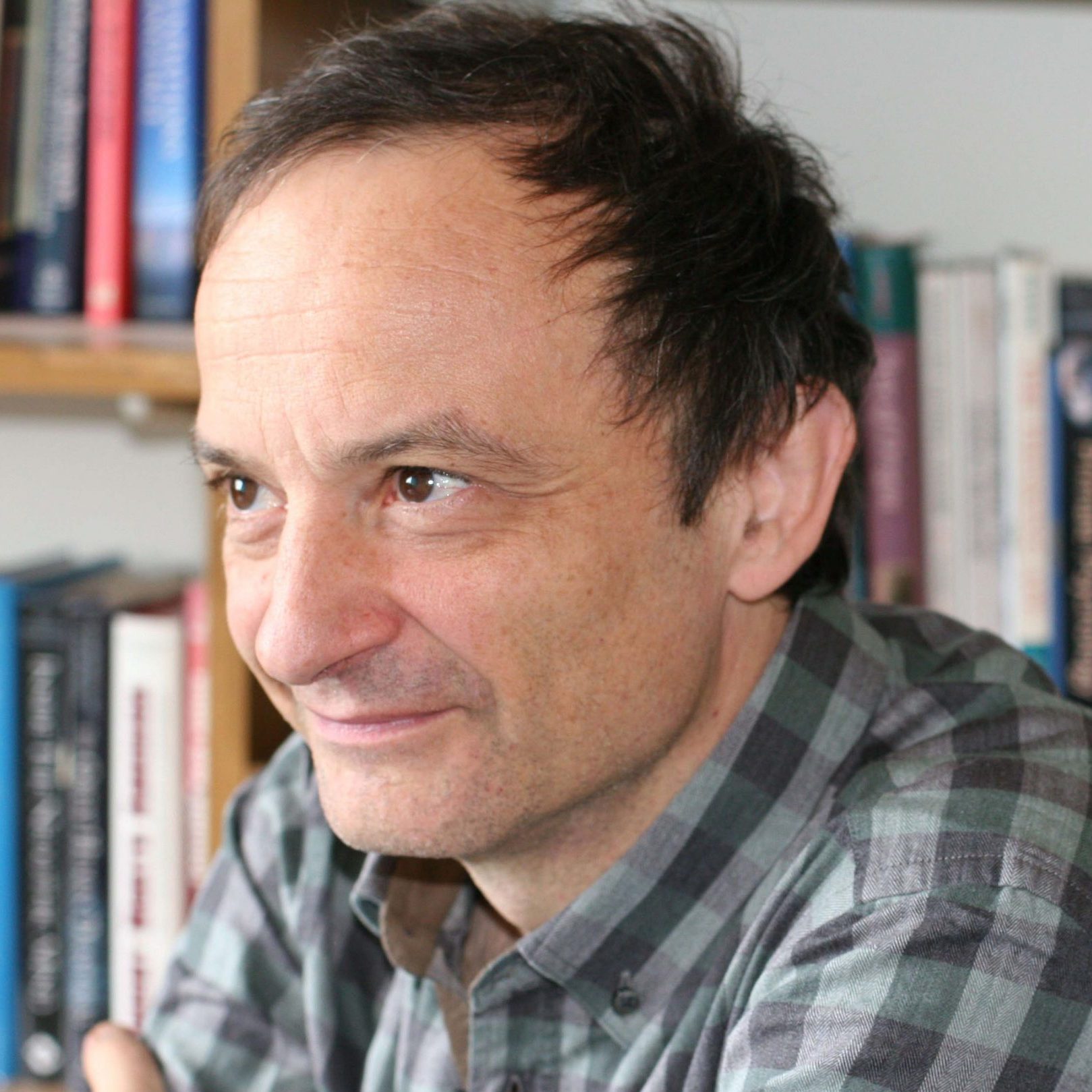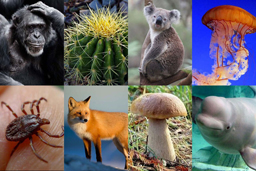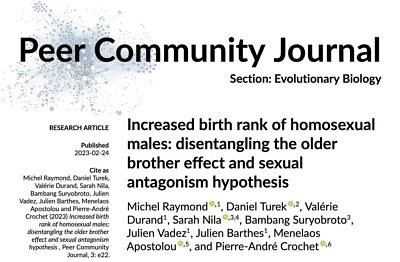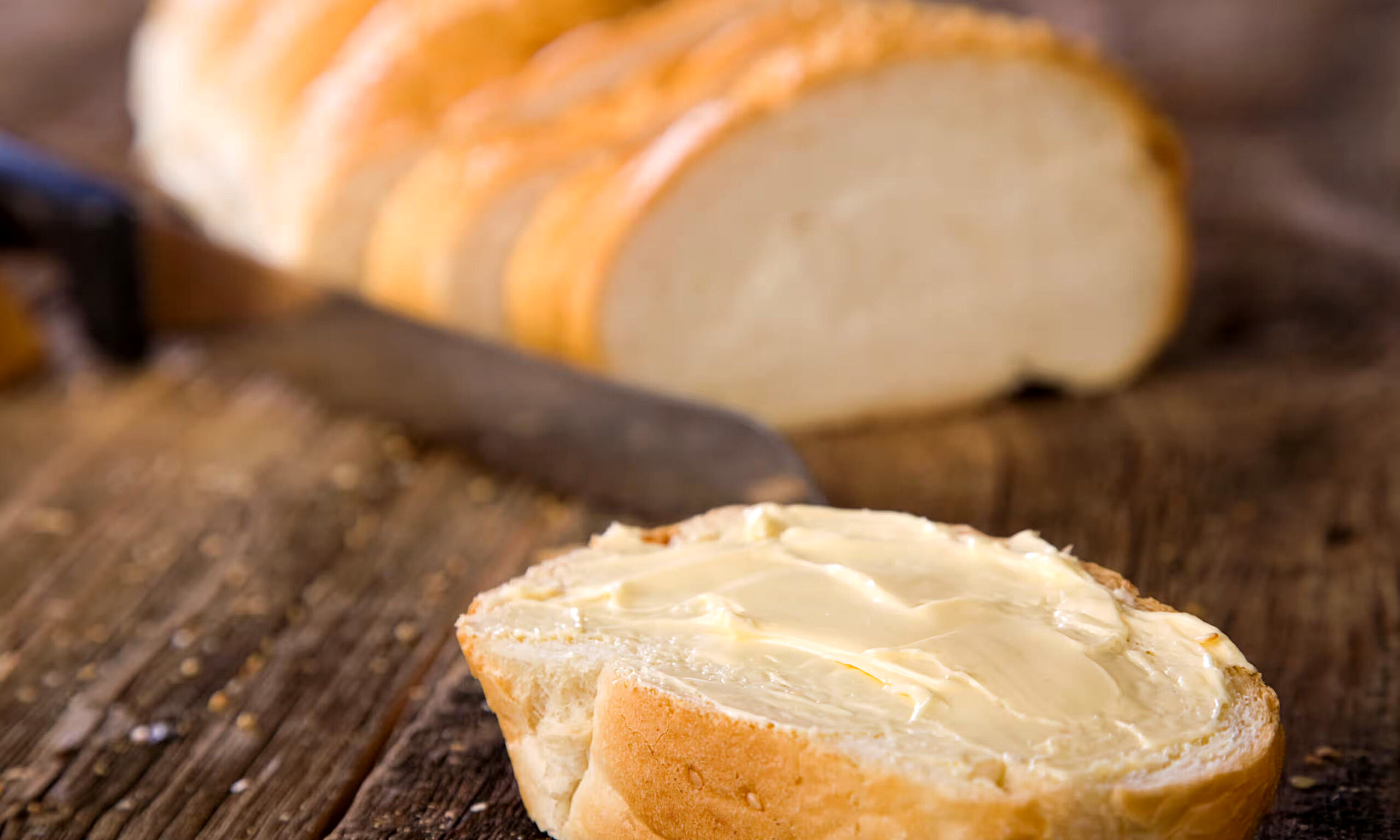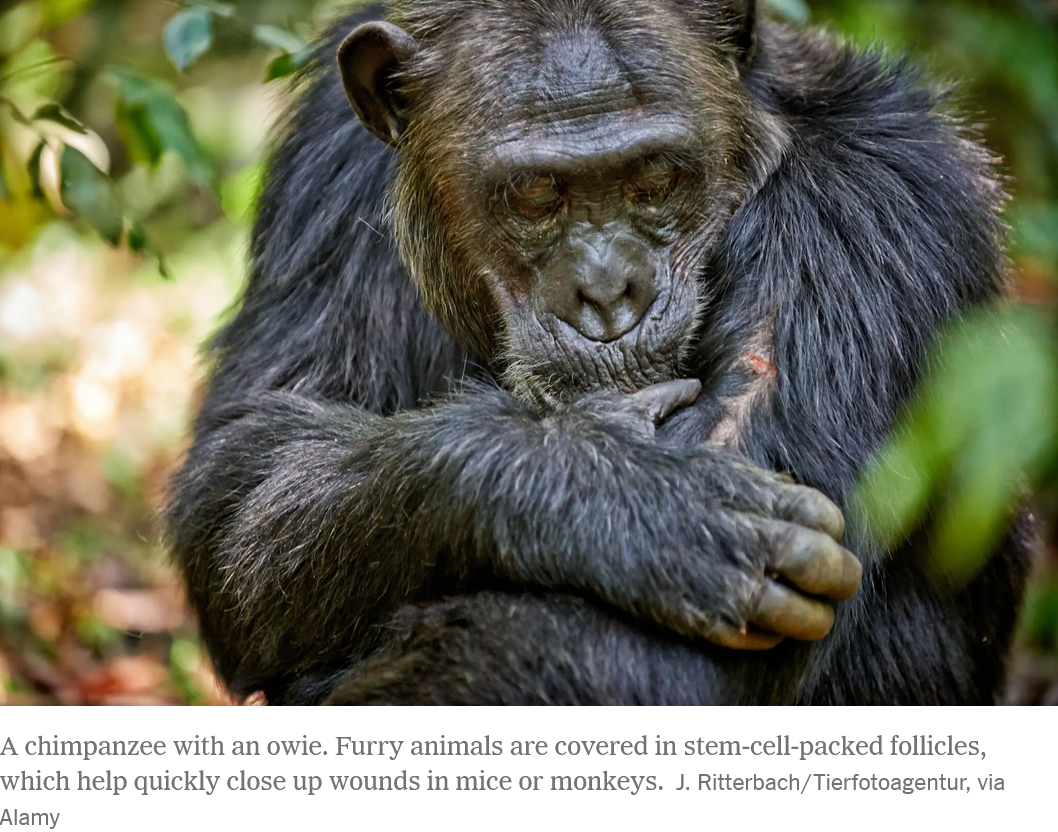Michel Raymond
Research Director
Human evolutionary biology, by overturning the traditional (but arbitrary) barriers between evolutionary biology and the human sciences, approaches everything related to the human species from a new angle.
I am particularly interested in cultural evolution, conflicts around parental investment, the evolution of aesthetic preferences, the understanding of manual laterality, and certain Darwinian paradoxes (frequent and heritable traits associated with lower survival or reproduction).
I propose an optional teaching module (introduction to human evolutionary biology) in the M2R Biodiversity, Ecology and Evolution course.
Raymond et al. 2023
Link to article Latest article on male homosexual preference: how to explain the effect of rank...
People who eat a breakfast rich in refined carbohydrates are considered less attractive...
According to a study... Press article published in "The Guardian" Press article published in...
Empathy for other species
Rich, diverse and complex, the range of emotions we feel when in contact with other organisms
organisms is...
organisms is...
Nutrition and disease in humans
Over the course of the 20th century, a substantial change in diet took place in...
Genetic adaptation to risk
The aim of this project is to study risk-taking behavior, the possibility of...
A broader cultural view is necessary to study the evolution of sexual orientation
The causality of sexual orientation is probably complex and influenced by multiple factors. We...
A broader cultural view is necessary to study the evolution of sexual orientation
The causality of sexual orientation is probably complex and influenced by multiple factors. We...
- 1
- 2
170 documents
- Fréderic Thomas, Josée Doyon, Eric Elguero, Jean-Pierre Dujardin, Jacques Brodeur, et al.. Plasmodium infections and fluctuating asymmetry among children and teenagers from Senegal. Infection, Genetics and Evolution, 2015, 32, pp.97-101. ⟨10.1016/j.meegid.2015.02.018⟩. ⟨hal-02515131⟩
- Jeanne Bovet, Michel Raymond. Preferred Women’s Waist-to-Hip Ratio Variation over the Last 2,500 Years. PLoS ONE, 2015, 10 (4), pp.e0123284. ⟨10.1371/journal.pone.0123284⟩. ⟨hal-03004588⟩
- Charlotte Faurie, Michel Raymond. Biologie évolutive humaine. Thomas F.; Lefevre T.; Raymond M. Biologie évolutive. 2nd Edition, De Boeck, pp.645-697, 2015. ⟨hal-04028988⟩
- Julien Barthes, Bernard Godelle, Michel Raymond. Response to comment on “Human social stratification and hypergyny: toward an understanding of male”. Evolution and Human Behavior, 2014, 35 (5), pp.448-450. ⟨10.1016/j.evolhumbehav.2014.06.001⟩. ⟨hal-03058390⟩
- Maxime Derex, Marie-Pauline Beugin, Bernard Godelle, Michel Raymond. Derex et al. reply. Nature, 2014, 511 (7507), pp.E2-E2. ⟨10.1038/nature13412⟩. ⟨hal-03162180⟩
- A. Tognetti, C. Berticat, Michel Raymond, Charlotte Faurie. Assortative mating based on cooperativeness and generosity. Journal of Evolutionary Biology, 2014, 27 (5), pp.975-981. ⟨10.1111/jeb.12346⟩. ⟨hal-03036637⟩
- Alexandra Alvergne, Fanny Perreau, Allan Mazur, Ulrich Mueller, Michel Raymond. Identification of visual paternity cues in humans. Biology Letters, 2014, 10 (4), pp.20140063. ⟨10.1098/rsbl.2014.0063⟩. ⟨hal-03008028⟩
- Maxime Derex, Bernard Godelle, Michel Raymond. How does competition affect the transmission of information?. Evolution and Human Behavior, 2014, 35 (2), pp.89-95. ⟨10.1016/j.evolhumbehav.2013.11.001⟩. ⟨hal-03162133⟩
- Michel Raymond, Bruno Maureille, Jean-Philip Brugal, Enguerran Macia. Évolution humaine, biologique et culturelle. Prospective de l'Institut Ecologie et Environnement du CNRS : compte rendu des Journées des 24 et 25 octobre 2012, Avignon, Oct 2012, Avignon, France. pp.103-110. ⟨hal-01837103⟩
- Frédéric Thomas, Simon Daoust, Michel Raymond. Can we understand modern humans without considering pathogens?. Evolutionary Applications, 2012, 5 (4), pp.368-379. ⟨10.1111/j.1752-4571.2011.00231.x⟩. ⟨hal-02505267⟩
Follow Me On
